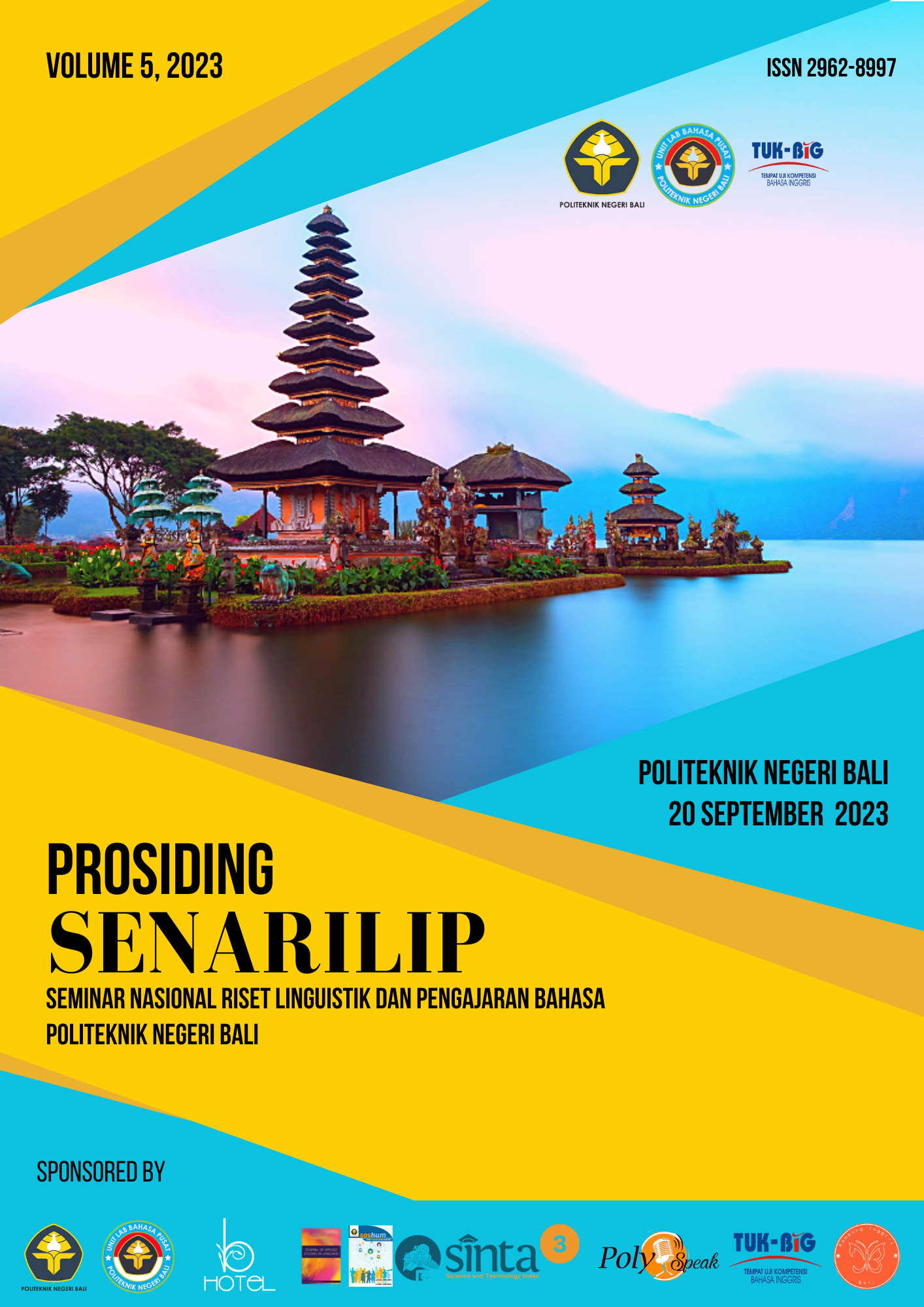The Use Of Speech Acts Types On English Speech Of The Local Tour Guides At Taro Tourism Village In Gianyar, Bali
DOI:
https://doi.org/10.31940/senarilip.v5i1.29-35Keywords:
Speech acts types, English speech, Local tour guide, Tourism villageAbstract
The objectives of the present research entitled:” The Use of Speech Acts Types on English Speech of Local Tour Guides at Taro Tourism Village in Gianyar, Bali” were to identify, describe and analyze the use of speech acts types on English speech of local tour guides at Taro Tourism Village in Gianyar, Bali. The research method applied in this research was the Qualitative Approach. The populations of the present research were all the subjects of the research which consisted of the local tour guides at Taro Tourism Village, who were the respondents and the informants by the research. The total number of the populations were 30 people of whom were studied and withdrawn for the conclusion. The research sampling techniques used was non-probability sampling techniques which consisted of purposive and saturated sampling techniques. The sampling techniques used at the present research were purposive sampling which was the choosing of samples with certain purposes based on the objections of the research, and Saturated Sampling which was the choosing of samples, where all the members of the populations were chosen as the samples. This was done because the member of the populations was relative small which were around 30 people. Therefore, the total number of samples of the present research were 30 people, which were taken from the whole number of populations which were also 30 people. The instruments used for data collection were non participation observation, check list, questionnaire and structured interview question. The research findings were that all of those three speech acts types were used on the English speech of the local tour guides at Taro Tourism Village in Gianyar, Bali. Those three Speech Acts Types were locutionary acts, illocutionary acts, and perlocutionary acts.

